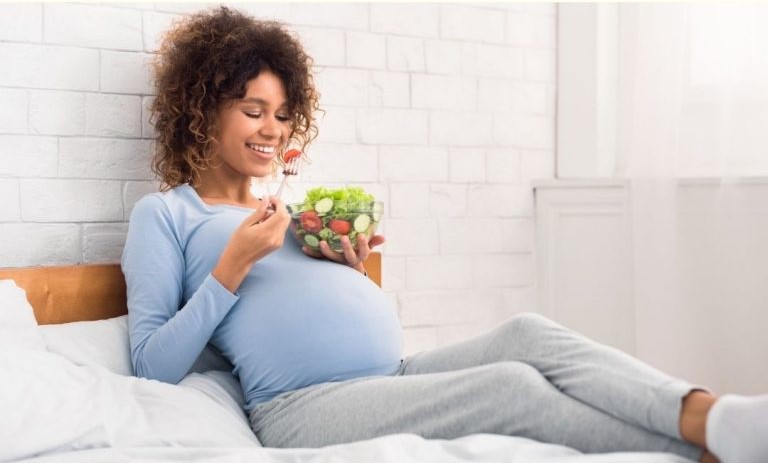Our Team Listens
Your symptoms are unique to you. Your nutritionist tracks your food with you and makes specific recommendations to help you and your developing baby.
Whether you learn best with one-on-one support or in a small group setting, we have the perfect program for you.
We also offer a wide array of self-guided materials, empowering you with valuable resources to further support your transformation.
How Nutrition Coaching Works
Our programs are meticulously designed to help you achieve your health goals while enhancing your overall well-being.
We provide personalized counseling and unwavering guidance, ensuring that every step of your journey is met with success.
Take Our QuizOnPoint's team of highly skilled online dietitians and nutritionists are dedicated to empowering you with the knowledge and tools to cultivate sustainable habits that lead to long-lasting success on your health and wellness journey.
You came to the right place! Our nutritionists for pregnancy can be the perfect partner to your primary care doctor and OB to help you throughout your pregnancy. Our evidence-based process helps you implement proven strategies to give birth to a happy, healthy, baby, and keep you sane during the process!

Build a thoughtful nutrition plan to help you develop a healthy baby and keep you feeling great during your pregnancy.
We teach you the keys of pregnancy nutrition: what to eat, how much to eat, and how to deal with quirks like food cravings and morning sickness - all with a meal plan customized to your individual needs.
Although everyone's pregnancy is unique to them, we help you pair traditional medicine with the recommendations from our Registered Dietitians to help you optimize your nutrition and give your developing baby all of the nutrients he/she needs to flourish.
Our Registered Dietitians help you determine:
We encourage our clients to stick to the basics. In addition to the food you eat, there are many helpful tips for preparing for your pregnancy. Our pregnancy dietitians help you simplify your eating patterns and focus on foods that you enjoy eating and support a health pregnancy.
We focus on incorporating:
Our dietitians also guide you through what to avoid while you are pregnant. This includes:
Our summary of what to eat and what to avoid is below. You can also find more information here:
| Healthy Foods for Pregnancy | Foods to Avoid | |
|---|---|---|
|
Fruits and Vegetables |
|
Unwashed produce can contain toxins and pollutants that are especially harmful when you are pregnant. Pay special attention to raw sprouts such as:
|
|
Complex Carbohydrates |
|
|
|
Lean Proteins |
|
|
|
Healthy Fats |
|
|

What you eat, your baby eats, so optimizing nutrition during pregnancy is vital for both moms-to-be and their babies. While there isn’t a magic formula for perfect pregnancy nutrition, including key foods and beneficial nutrients will nourish you and your baby through this important time in both of your lives.
Certain foods pack an especially strong nutrient punch and can help you achieve your nutritional goals during pregnancy. We consider these to be pregnancy superfoods.
| Food Type | Examples |
|---|---|
|
Complex Carbohydrates |
|
|
Protein |
|
|
Veggies |
|
|
|
|
Fat |
|
Consuming real, nutrient-dense, whole foods gives your body the nourishment it needs to grow a healthy baby.
Here are a few ways to evaluate how “real” your diet is.
You can use these concepts to build a healthy, well-balanced pregnancy diet. Well-balanced meals and snacks are an important part of a healthy diet for everyone, but even more important during pregnancy. Generally, combining real foods into nourishing meals and snacks is a healthy way to approach nourishing your body throughout pregnancy.
Try out these tips for incorporating real foods into your Pregnancy Diet.
Pregnancy can coincide with with changes to your taste preferences, which may include both cravings and food aversions. While pregnancy often includes an increased appetite, food cravings can happen even when you are not hungry. Whether you are experiencing cravings or aversions, listening to your body is important throughout pregnancy and beyond. Pregnancy cravings may be linked to specific:
Experts hypothesize that food cravings are not linked to a specific food, but instead, that your body needs a nutrient found in that food. For example, craving pickles may be linked to needing additional sodium, or craving ice cream may be linked to needing more fat in your diet. Experiencing and indulging pregnancy cravings is normal. When you are eating a food you crave, utilize mindful eating techniques.
The most common pregnancy cravings in the United Stated include:
With all the hormonal changes during pregnancy, it is common to crave foods you once disliked or be averse to foods you previously loved. Both cravings and aversions may change at any time during or after pregnancy.
Cravings may be harmful when nutrient-dense foods are crowded out of your diet by the less healthy foods you find yourself craving. If you find yourself eating large quantities of high fat, high sugar, high salt, or highly processed foods, schedule time with your doctor or dietitian to revisit your care plan and how you are planning your meals.
During the first trimester, the hormones human chorionic gonadotropin (hCG) and estrogen rise. The rapid increase in hCG may cause nausea, food cravings, and food aversions. HCG levels peak and level off toward the end of the first trimester, typically at week eleven.
Every woman and every pregnancy is different, and any food may trigger an aversion at any time. Women have have reported food aversions based upon:
Common pregnancy food aversions include:
Considering all the hormonal changes during pregnancy, you may avoid foods you once loved or crave foods you previously disliked. Aversions and cravings may change at any time during or after your pregnancy.
For the most part, avoiding foods you are averse to and eating foods you are craving is perfectly normal.
However, if your food aversions have led you to cut out key nutrients during your pregnancy, look for other ways to get important vitamins, minerals and macronutrients. Common hacks include:
During pregnancy, your body needs to produce more blood to support both you and your growing baby. Red blood cells require iron to make hemoglobin, which is the protein that carries oxygen from your lungs to your tissues and your baby’s developing organs. Your body cannot produce iron, so you have to obtain it through your food. And without enough iron, your body will underproduce red blood cells, a condition called anemia. If you develop anemia during pregnancy, your risk for premature birth, low birth weight, and postpartum depression increases.
If you experiencing the following symptoms during pregnancy, consult your doctor and dietitian to evaluate whether you have anemia:
As part of a well-rounded diet, focus on the following high-iron foods:
Read our full write up on good iron food sources for more details on each of these foods.
Folate is part of the B vitamin group. Folate is an important nutrient that helps form DNA and RNA. Your body also uses folate to produce red blood cells and is critical during periods of rapid growth (pregnancy and fetal development).
Foods that naturally contain folate include:
Read our full write up on healthy folic acid food sources for more details on each of these foods.
If you have diabetes, working with a dietitian during your pregnancy will help you and your baby stay safe and healthy.
Gestational Diabetes is diabetes diagnosed for the first time during pregnancy. Similar to Type 1 and Type 2, Gestational Diabetes affects how your body uses glucose. When pregnant, you should get checked for gestational diabetes as part of general prenatal care.
Common symptoms include:
Risk factors for developing gestational diabetes include:
Fish and shellfish are both high in protein, calcium, iron, vitamin B12, and vitamin D, which are all crucial during pregnancy. Your daily iron needs increase during pregnancy, which makes getting iron in your food even more important. Fish is also high in omega-3 fatty acids, which are important for your baby’s growth and development.
Although fish and shellfish are good protein, healthy fat, and iron sources, there are risks when consuming certain types of seafood while pregnant. Avoid fish with high mercury concentrations.
Other food safety practices may help to limit the likelihood of developing a foodborne illness from seafood:
The best seafood choices are the safest fish to consume during pregnancy. Consuming 8 to 12 ounces of these weekly is safe during pregnancy. The best choices include:
Eating spicy foods during pregnancy is generally safe for both you and your baby. However, while there are no threats to you or your baby, spicy foods may cause some uncomfortable side effects for pregnant women, including heartburn and indigestion. Both issues are common in pregnant women regardless of what they eat, but spicy foods may make these issues even worse.
The effects spicy foods have on your body may vary by trimester:
Nausea is most common early in pregnancy, and is often called morning sickness, although it can last all day. Heartburn is common during the second and third trimesters. Hormonal changes in your body relax the muscle that prevents stomach acid from leaking into the esophagus, which makes acid reflux more likely.
While there is some caution against overdoing spicy foods during pregnancy, there are benefits to including a bit of spice in your pregnancy diet. Capsaicin, which gives peppers their spice, is anti-inflammatory, and believed to support your immune system and heart health.
Read the full download on spicy foods and pregnancy here!
Nausea and vomiting are common during the first trimester of pregnancy. Most often, nausea sets in during weeks 6 to 12 of pregnancy, which is caused by rapidly changing hormone levels.
Below are our top tips for avoiding, managing, and preventing future morning sickness
During days or times that you are feeling better, try to expand your palette. Try your best to consume a variety of fruits, vegetables, complex carbohydrates, lean proteins, and healthy fats as tolerated.
Food poisoning happens when you consume something that contains bacteria, a virus, a parasite or a toxin that causes your body to have a negative reaction. Food poisoning symptoms include nausea, vomiting, diarrhea, and stomach cramps. Most food poisoning is mild and resolves without treatment. When you are pregnant, take the following food poisoning precautions.
Food safety and prevention of a foodborne illness is extremely important during pregnancy. There are precautions you can take to avoid getting sick. Four simple steps you can take to ensure food safety are:
In addition to these preventative measures, learn the foods that are most likely to cause food poisoning:
Bloating and uncomfortable fullness are common during pregnancy. Unlike other pregnancy symptoms, this symptom may last through all three trimesters. Fullness and bloating may be accompanied with nausea and vomiting, often referred to as morning sickness, or may present on their own.
Fullness and bloating make it challenging to eat all the nutrients you and your growing baby need each day. You may not feel like eating or may struggle to consume a full meal in one sitting. Many women also report changes in hunger levels and appetite during pregnancy.
Progesterone is largely to blame for uncomfortable fullness during pregnancy. Progesterone is a hormone secreted in the ovaries and released during pregnancy. This hormone relaxes your smooth muscles, which is critical while growing and carrying a baby. However, progesterone also relaxes the muscles in your stomach, small intestine, and large intestine, which slows your digestion significantly.
There are a few different things to try to alleviate your pregnancy bloating. We recommend:
We elaborate on each of these recommendations in our dedicated write-up.
Click this link for a detailed walkthrough on each of these remedies for pregnancy bloating.
In addition to bloating, you may also struggle to complete bowel movements while pregnant. Pregnancy constipation often accompanies bloating and is caused by a slowdown in your digestion. Hormones changes during pregnancy are the main reason your digestion slows down.
Unfortunately, constipation may occur in all three trimesters, and often appears throughout entire pregnancies. However, the good news is constipation is reasonably easy to fix.
You can relieve pregnancy constipation by:

Your symptoms are unique to you. Your nutritionist tracks your food with you and makes specific recommendations to help you and your developing baby.

Based upon your daily routine, we will build a custom plan to help you feel alert, strong, and well-nourished while pregnant.

Success does not happen overnight. If something isn't working quite right, we make changes right away.
“My team and I would be honored to be part of your health journey! Our priority is your health and happiness; no goal is too big or too small. We look forward to working with you soon!”
